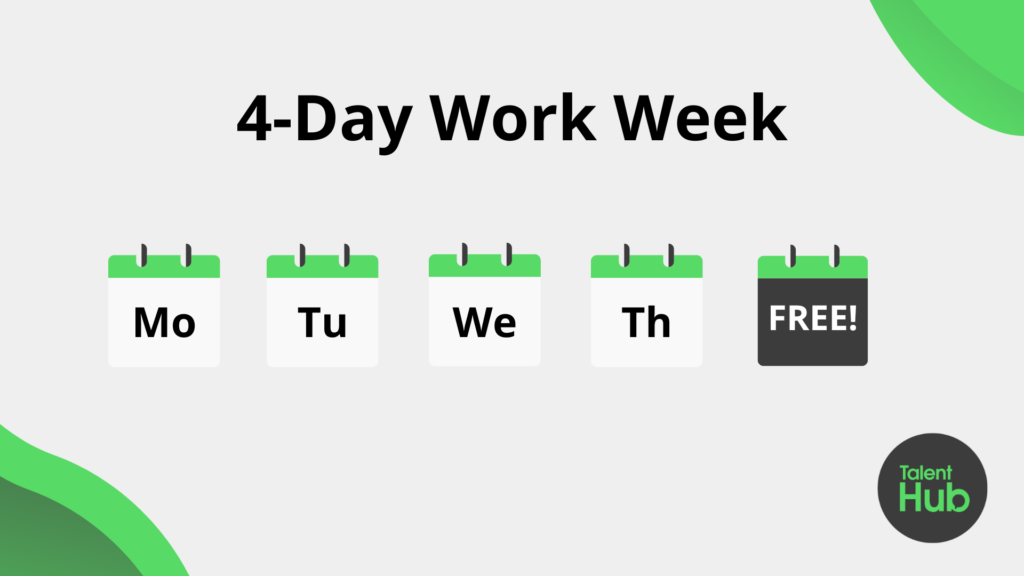It’s been six weeks since we began our 2-month period of working four days a week. Let’s check in on how things have been going.
What have we changed in our working ways?
We wanted to make the transition to a 4-day work week as smooth as possible. We prepared our team by creating an internal document full of tips and tricks on how to work as efficiently as possible.
Here are some of the areas on which we have focused:
Limiting time in meetings
Working four days instead of five means more asynchronous communication between the team and partners. You have to think critically about whether a meeting is necessary or if a Slack message or email is enough. If there is a meeting, do we need an hour or can we achieve the desired outcome in 30 minutes?
For instance, at the beginning of the 4-day work week, we continued to do our weekly team meetings on Mondays. Yet, they took up too much time, so we decided to do them every other week instead.
It’s also important to maintain good meeting hygiene. Every participant should know beforehand what the meeting agenda is, and what the desired outcome is.
Planning and setting sub-goals, deadlines
Here at TalentHub, we encourage everyone to set daily goals and weekly goals. We’ve always done that, but now the importance of it has grown even more. It’s a great way to keep yourself on track, especially when time flies by and you have a lot on your plate.
Scheduling time for deep work has been a major contributor to getting more things done. We’ve encouraged our team to schedule “no meeting” times in their calendars. You have to have time when you can turn all distractions off and focus on what matters most. Of course, it’s different for each individual. Some have more willpower in the mornings, some in the afternoons.
We’ve also used techniques such as the Eisenhower Matrix (do-decide-delegate-delete) for prioritizing tasks and the Pomodoro technique for time management.
Another good source for inspiration has been Scoro who is also doing a 4-day work week.
What has surprised us about the 4-day work week?
In the beginning, there was a period of uncertainty among our team members. How will we get everything done? How will our partners and candidates react to us being unavailable on Fridays.
Yet, it’s possible to do everything in four days and not feel stressed. It all comes down to planning. If you know what you have to focus on, you plan your time, minimize the number of meetings, and schedule time for deep working, there’s nothing to worry about.
If anything, our partners and candidates have been curious and supportive, asking how the 4-day work week is going.
Positive feedback and impact on mental health
We’ve received positive feedback from the team. People are raving about how an extra day off helps with mental health and energy levels. The best thing about it is that you can use the free Friday to do whatever you desire. There’s more time to pursue hobbies, spend time with loved ones, or decompress by doing absolutely nothing. All this means a more balanced lifestyle. For many, it translates to having more energy and a happier mood when coming to work on Monday morning.
Future outlook
There’s always room for improvement. Yet, considering it’s our first time trying something like this, and based on the feedback we’ve received, we’re happy with the outcome.
If we were to switch to a permanent 4-day work week, we could plan to work even more efficiently.
Expect to hear from us again soon. Until next time!


